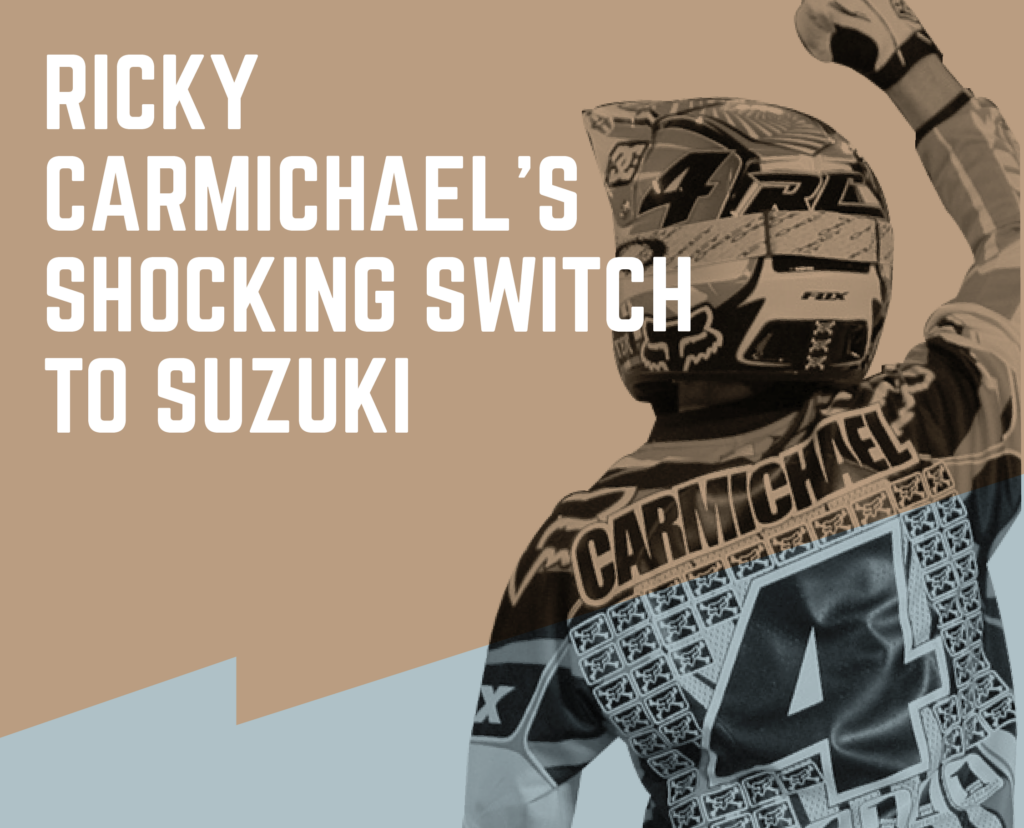
Part 1: Carmichael takes an “unbelievable” $4.7 million guarantee
Ricky Carmichael’s phone rang. Looking at the name on the small display, he knew taking this call determined where he would spend the rest of his professional motorcycle racing career. Deep down, he didn’t want to make changes but that was before his agent found a lucrative, almost unrealistic, competing offer.
It was late March 2004 and Carmichael hadn’t competed in nearly six months. A knee injury forced him out of the AMA Supercross series and his chance at a fourth consecutive championship.
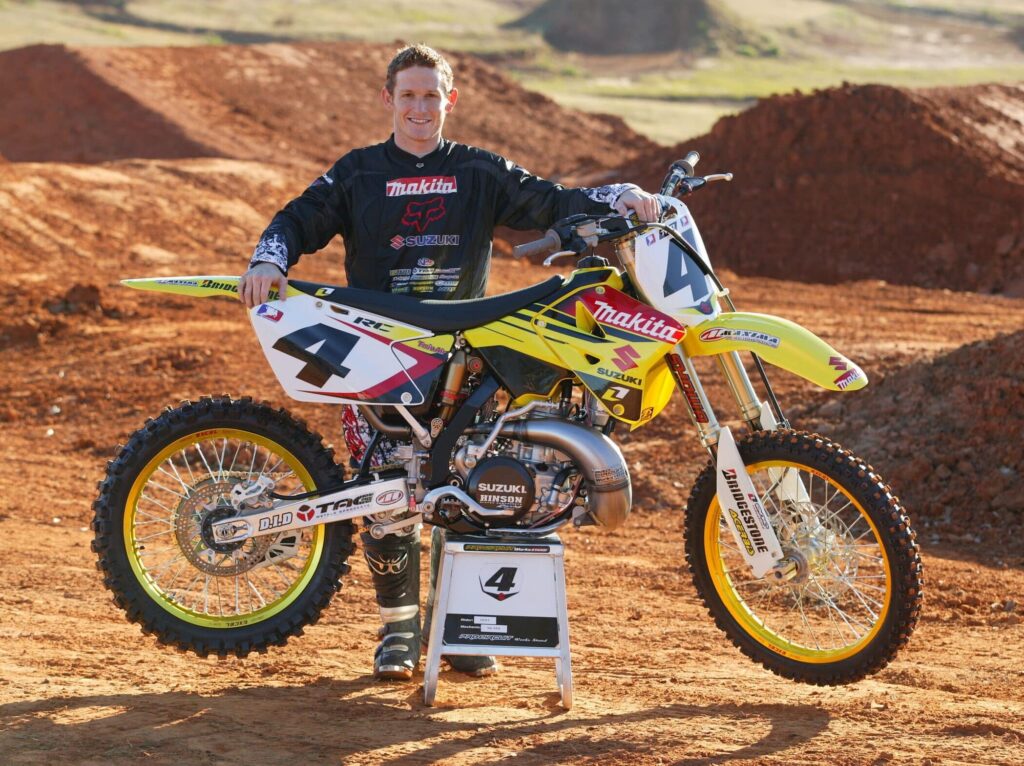
His reconstructed left ACL was almost ready for the abuse of training. Like everything in his life, a plan was in place for that. First, however, Carmichael had to pick a color.
After more than eight months of discussions he had the choice between a red pill or a yellow pill. Red represented remaining with contented surroundings, impressive monetary opportunity, proven technology, spectacular historical records but a base compensation below what he wanted. Yellow represented a new challenge, unproven but capable technology, a guaranteed life-changing financial incentive and a desire to return to winning so great the company was willing to invest in one rider in a go for broke, bet it all, hold-my-beer-style gamble.
FAST TRIVIA
Ricky Carmichael competed in 260 races between Sept. 1, 1996 and Aug. 12, 2007. How many did he miss due to injury?
Carmichael walked outside, leaned against an oak tree, pressed the green button on his mobile phone and said hello to Ray Blank, the vice president of American Honda’s motorcycle division. Blank, an ardent two-wheel enthusiast, was the highest ranking non-Japanese executive in his department. Former co-workers use colorful adjectives to describe working with Blank: blunt, intimidating, tough, firm yet fair.
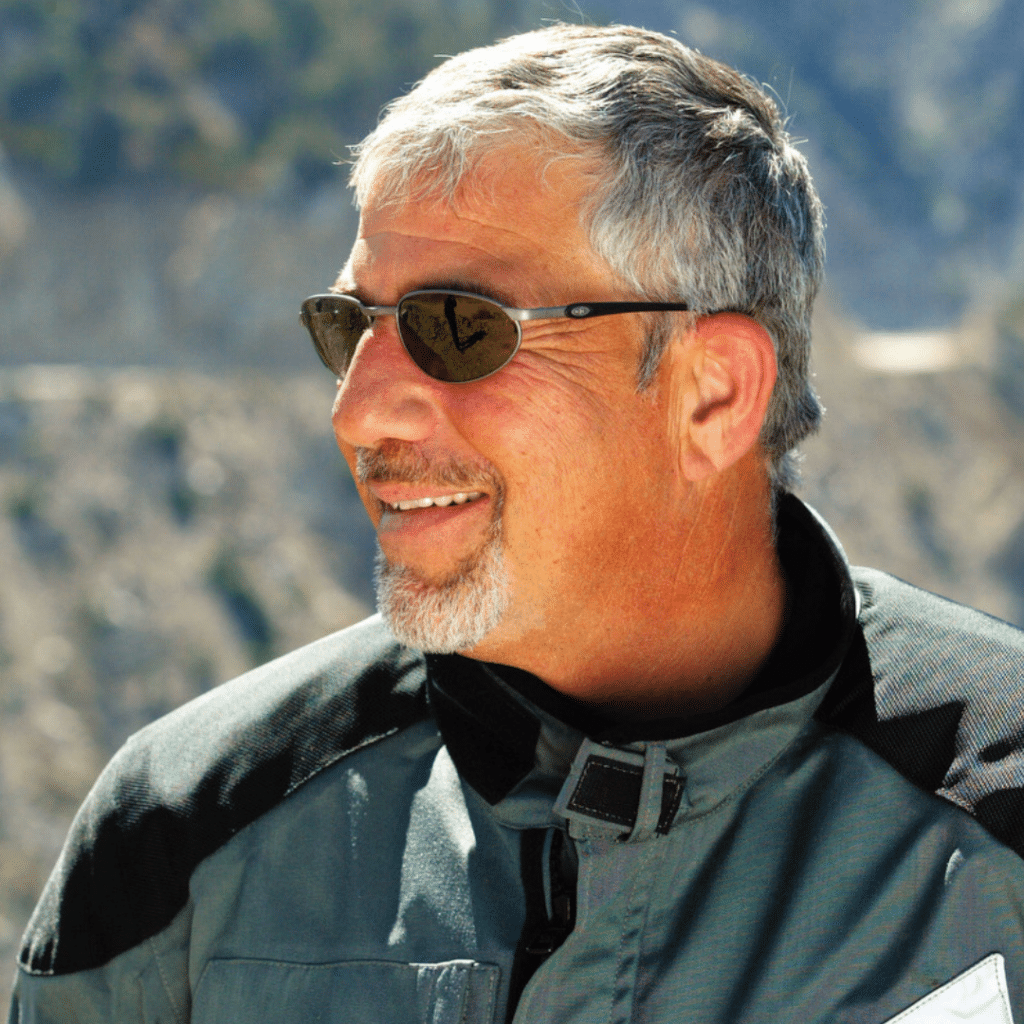
Chuck Miller, a former desert racing champion, who spent 36 years working in various Honda departments, remembers Blank’s love for racing, winning and the creative dealmaking that kept Honda motorcycles on starting lines.
Miller said he once watched Blank work his automobile counterpart in the company smoking room. At the beginning of the meeting, Honda’s storied off-road program, which included many Baja titles, was in jeopardy. By the end of it, Blank had convinced the automobile division to help fund motorcycle off-road racing in a mutually beneficial relationship.
RC in “The Art of Perfection”
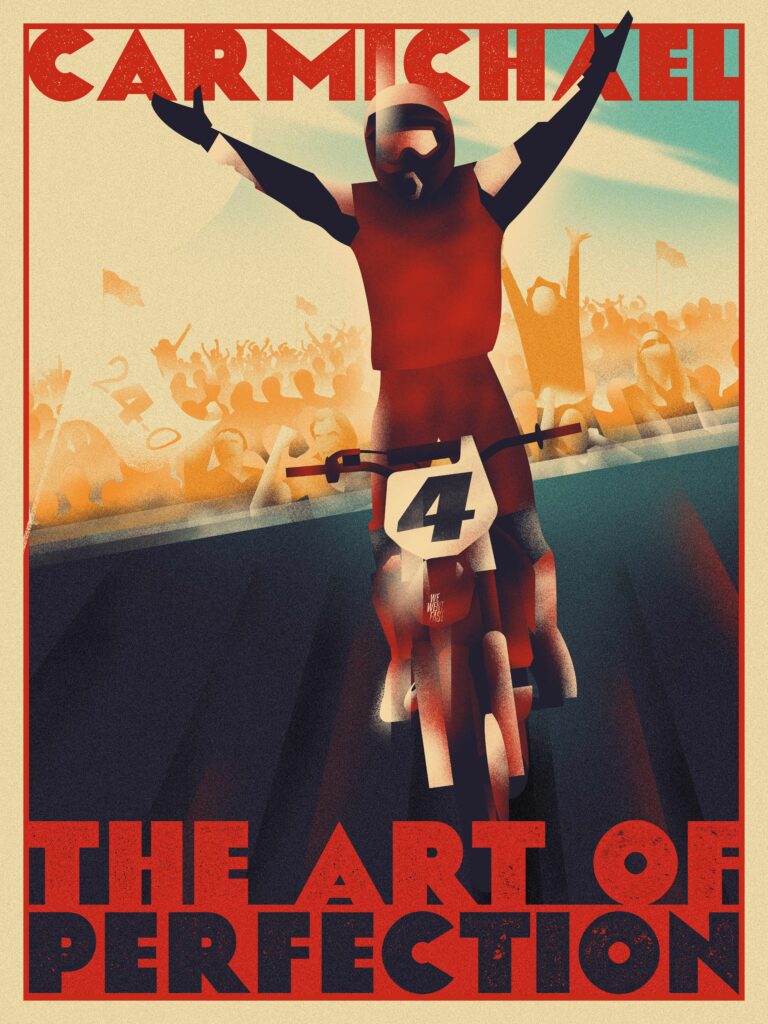
American Honda and Carmichael were deadlocked. Blank exercised Honda’s first right of refusal clause and forced Suzuki to show the offer they made to Carmichael: $4,700,000 in guaranteed base salary for the 2005 racing season, which increased to $5,300,000 in 2006 on the success of two championships (often called accelerator clauses). No race win bonuses. Nominal title bonuses.
According to Carmichael, Blank called the Suzuki deal ‘unbelievable’ and congratulated Mel Harris – Blank’s equivalent at Suzuki – for pulling it off. But Carmichael said he really wanted to stay at Honda and made one more effort to get them to budge. In the end, Carmichael said it came down to him wanting another $300,000. But Blank’s response to this amounted to a negotiating mic drop.

“This is our final offer,” Blank said, according to Carmichael. The performance-bonus-heavy offer included $6,200,000 per contract year in potential earnings (potential because he had to win all the heats, mains, motos, overalls and championships to earn that much). The guaranteed compensation of the Honda offer was less than half of Suzuki’s and, according to Carmichael, included an injury clause. Injury clauses vary but Carmichael didn’t like what he read. Suzuki’s contract had no such passage.

Carmichael usually struggles to recall granular details from his life. And he likes to move on quickly once decisions are made, but what he remembers Blank saying next is tattooed in his brain:
“You can either stay here and be the Honda hero like Miguel Duhamel (road racer), or you can go try to be the great white hope of Suzuki like Jeremy McGrath was for KTM. And you saw how that worked out for him. I hope you choose wisely.”
Carmichael still hears those words. He was stunned and saddened, yet finally had closure and decisive clarity about what to do next. He thanked Blank for the call and told him, “Looks like I have a decision to make.”
In a text message to We Went Fast, Blank curtly responded to repeated requests to participate in this story: “Honda policy is not to discuss these issues publicly,” he wrote. He retired from American Honda in October 2012.
Today, Mike Gosselaar speaks of this moment as both “tragic” and “devastating”. Gosselaar, Carmichael’s race mechanic in 2004 and a Honda employee since 1993, heard the whole conversation on speakerphone.
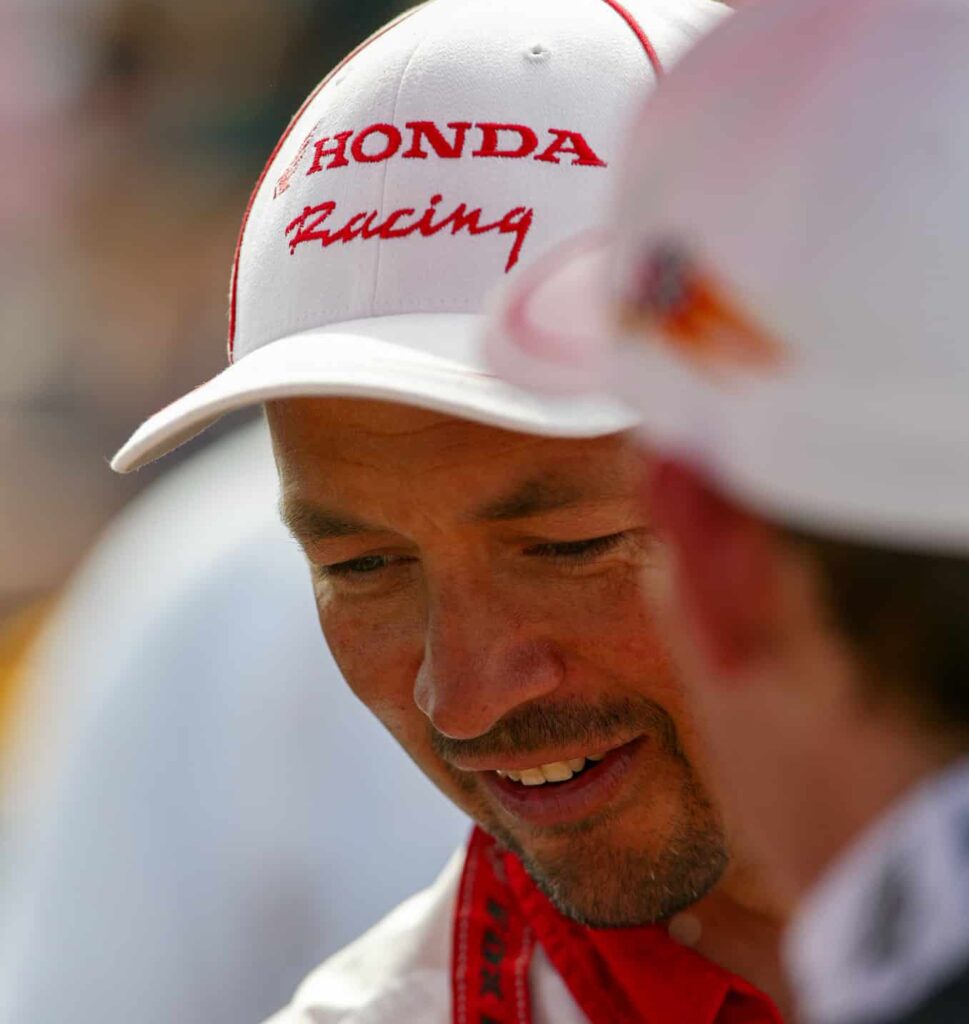
Gosselaar’s own future was independent of Carmichael’s but he desperately wanted his rider to stay at Honda. For months he lobbied with management, “…just trying everything to get it to work,” Gosselaar says. “It was devastating when we found out it wasn’t.” Gosselaar remembers more emotion while standing under that tree and hesitates before admitting that Carmichael seemed to be fighting back tears.
“’Well, I guess we’re going to Suzuki,’” Gosselaar remembers Carmichael saying. “’Let’s go see what we can do with that bike.’ Only he used stronger language than that.”
With a decision made, he felt relief. He could now focus on returning to riding, racing and winning. He had six weeks to prepare for the 2004 AMA Pro Motocross season and the motivation to make it a championship nobody would forget.
To everyone outside the Honda/Carmichael orbit, the whole thing made no sense. Almost twenty years later, people still ask questions. Carmichael was just 23 and already the winningest rider in motocross and supercross history.
But the deal didn’t blow up in one phone call. To understand where it went sideways, let’s go back to a time when everything in Carmichael’s life was still green.